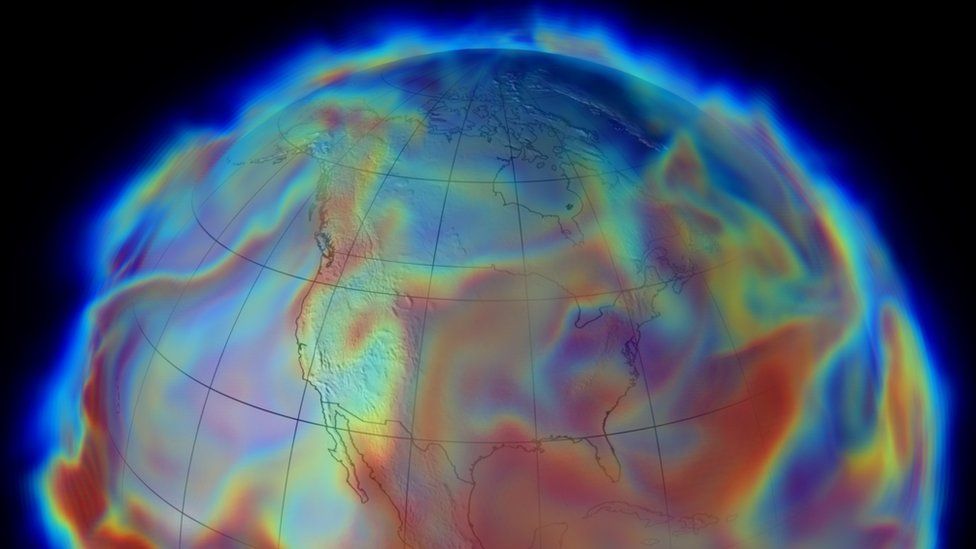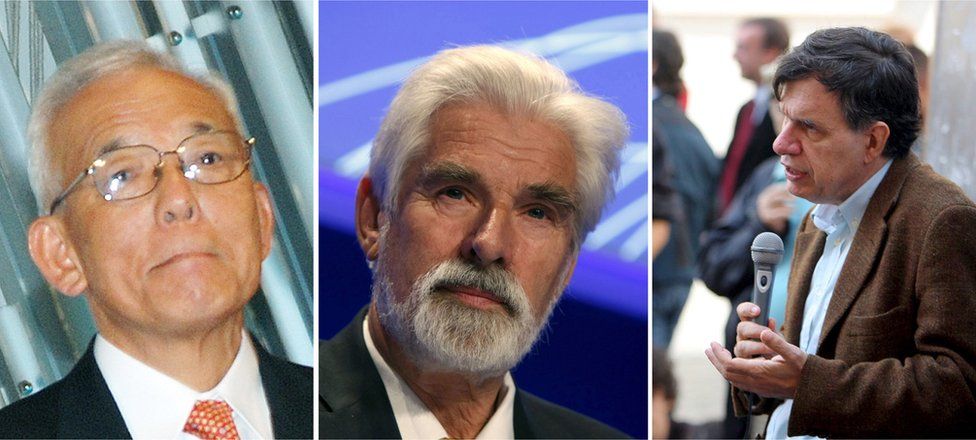Science editor, BBC News website

Computer analysis of the Earth's climate is important for informing efforts to tackle global warming
Syukuro Manabe, Klaus Hasselmann and Giorgio Parisi were announced as the winners at an event in Stockholm.
Research by Manabe and Hasselmann led to computer models of the Earth's climate that can predict the impact of global warming.
The winners will share the prize money of 10 million krona (£842,611).
It is incredibly difficult to predict the long-term behaviour of complex physical systems such as the climate. Computer models that anticipate how it will respond to rising greenhouse gas emissions have therefore been crucial for understanding global warming as a planetary emergency.
- A really simple guide to climate change
- What will climate change look like near me?
- Four ways climate change links to extreme weather
The climate models that have built on the winners' research form a crucial part of the evidence on which leaders at COP26 will base their decisions.
Japan-born Syukuro Manabe, 90, who is senior meteorologist at Princeton University in New Jersey, demonstrated how increased levels of carbon dioxide in the atmosphere could lead to increased temperatures at the surface of the Earth. In the 1960s, he led the development of physical models of the climate.
Roughly a decade later, Klaus Hasselmann, 89, from the Max Planck Institute for Meteorology in Hamburg, Germany, created a computer model that linked together weather and climate. His work answered the question of why climate models can be reliable despite weather being changeable and chaotic.
L-R: Syukuro Manabe, Klaus Hasselmann and Giorgio Parisi

No comments :
Post a Comment